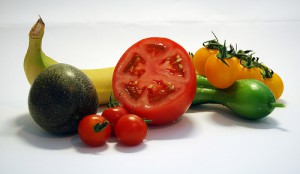Neonicotinoid residues found in commonly consumed produce
According to a study conducted by scientists from Harvard University and published in the journal of Agricultural and Food Chemistry, neonicotinoid residues are often found in many of the most commonly consumed fruits and vegetables. Neonicotinoids are the most common class of insecticide used in conventional agriculture, and are applied directly to the plant or the soil where they can be taken up by roots and stored in plant tissues. Results from the study suggest that exposure to neonicotinoid insecticides in produce sold for human consumption may be more common than previously thought. “All fruit and vegetable samples, with the exception of nectarine and tomato, tested positive for at least one neonicotinoid,” and most fruits and almost half of all vegetables tested had residues of at least two different neonicotinoids, the study found. Neonicotinoids have been implicated as a cause for honeybee die-offs and recent studies suggests that they may also have negative health effects on mammals as well. The authors have called for an assessment of dietary neonicotinoid intakes and the potential effects they may have on human health.




